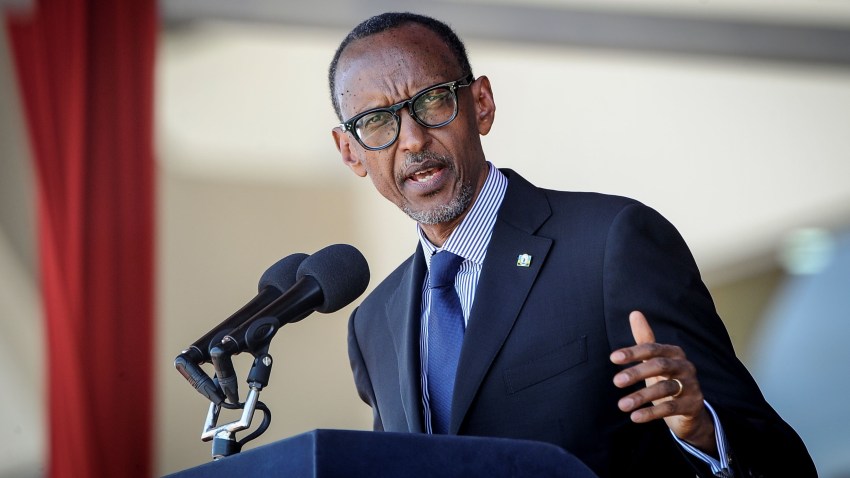Meanwhile, Rwanda’s supposed hospitality and welcoming environment for asylum-seekers is belied by reports of widespread arbitrary detention, torture and maltreatment of refugees. And that is to say nothing of Rwanda’s dreadful human rights record under Kagame, which even the U.K. government noted was characterized by “continued restrictions to civil and political rights and media freedom” as recently as January 2021. That same U.K. government report recommended that steps be taken to investigate allegations of torture, forced disappearances, extrajudicial killings and deaths in custody. Many of Kagame’s critics have been detained, tortured, forced into exile or killed, including a number of them abroad, fueling suspicions that Kagame’s regime pursues its perceived enemies well beyond Rwanda’s borders. These abuses are well-established facts in the human rights community and among Kagame’s critics, including Rwandan dissidents abroad. But they are inconvenient truths when it comes to the widespread international perception of Kagame as a modern African leader, one who has rebuilt his country from total ruin and turned it into an “African success story” in his more than two decades in power. As I argued in a Twitter thread, Rwanda under Kagame punches well above its weight in terms of its international image, and it is not by coincidence. For many years, it has retained the services of international public relations shops, consulting firms, lobbyists and journalists to build up that image, particularly in Western capitals. And on a pound-for-pound basis, the country has arguably earned a better return on that investment than other African countries like Ghana, given its recent history, smaller size and relatively smaller visibility. Kagame and other Rwandan government officials are regular fixtures at events like the World Economic Forum, he frequently gives interviews to elite Western media organizations and engages with academic institutions, where he is generally received by a broadly sympathetic audience. A succession of Western political leaders, ranging from French President Emmanuel Macron and former U.S. President Bill Clinton to former British Prime Ministers Tony Blair and David Cameron, have praised Kagame as a model African leader, among other plaudits. Kagame also tends to be supportive of U.S. counterterrorism efforts in Africa, and he is willing to commit military and other resources in parts of the continent where the U.S. and other Western governments are hesitant to venture. As a result, Washington is willing to look the other way on his human rights abuses and other infractions, earning him the moniker of “America’s darling tyrant.” Many observers argue that the Western goodwill Kagame benefits from is due to a hangover of guilt and “shame” stemming from the West’s inaction during the 1994 genocide. There is some truth to the claim, but it is equally the case that many of Rwanda’s Western partners are invested in the idea of an “excellent” African leader presiding over a fast-growing economy with considerably impressive indicators across many social categories. The partnership with the U.K. also underscores the steps Kagame has taken to integrate Rwanda into the Anglophone world and distance it from French and Belgian influence, with much of the tension with the former countries undoubtedly rooted in the country’s colonial past and the 1994 genocide. In 2008, Rwanda changed the official language of instruction in its national education system from French to English, and the country joined the Commonwealth of Nations the following year, in part due to Kagame’s desire for closer integration with English-speaking neighbors that are former British colonies, including Uganda, Kenya and Tanzania. Rwanda is set to host the 2022 Commonwealth summit, a gathering of government leaders from mostly former British colonies. And despite what appears to be a thawing in relations between Kigali and Paris, the pivot toward the English-speaking world appears to be a permanent part of Kagame’s plan to build broader international ties beyond France and the Francophone countries of Africa. The Rwanda-UK deal is expected to face legal challenges. But whatever ultimately happens in the courtroom, the Rwanda-U.K. partnership is yet another step in that direction, and the deal’s erosion of international humanitarian norms and Kagame’s record of human rights abuses do not appear to be an obstacle.Rwanda’s human rights abuses are well-established facts. But they are inconvenient truths when it comes to the widespread international perception of Kagame as a modern African leader.
Chris O. Ogunmodede is an associate editor with World Politics Review. His coverage of African politics, international relations and security has appeared in War on The Rocks, Mail & Guardian, The Republic, Africa is a Country and other publications. Follow him on Twitter at @Illustrious_Cee.

